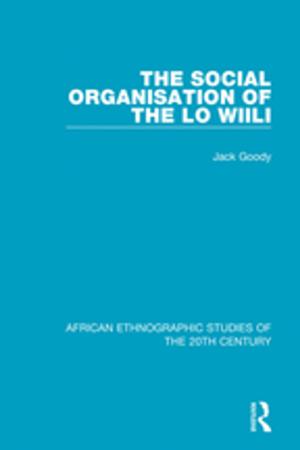Language and the Market Society
Critical Reflections on Discourse and Dominance
Nonfiction, Reference & Language, Language Arts, Communication, Business & Finance, Business Reference, Business Communication| Author: | Gerlinde Mautner | ISBN: | 9781135147044 |
| Publisher: | Taylor and Francis | Publication: | March 28, 2010 |
| Imprint: | Routledge | Language: | English |
| Author: | Gerlinde Mautner |
| ISBN: | 9781135147044 |
| Publisher: | Taylor and Francis |
| Publication: | March 28, 2010 |
| Imprint: | Routledge |
| Language: | English |
In education, politics and religion, there are strong indications that discourse is becoming marketized. Around the world, government ministries have re-defined themselves as "service providers," universities draw up "market-driven" curricula, job seekers are asked to "package themselves" more effectively, and there are advertising agencies specializing in "the Christian marketplace." And it is not only word choice that is effected; higher-level linguistic patterns, such as genres and discursive practices (such as the text and talk connected with performance measurement and public relations), are also drawn into the orbit of market forces. Through an intricate dialectic, such patterns of linguistic choices, in turn, reinforce the social structures that shape them, further consolidating the marketization process. In a related development, language within the business domain itself is increasingly shaped by strategic planning and control, for example in branding, message design, and the promulgation of management buzzwords. Marketization thus emerges as a globally unfolding process in which language holds a key position as both cause and effect, and as both subject and object. The book examines these phenomena from a linguistic and critical perspective, drawing on critical discourse analysis, sociological treatises of market society, and critical management studies.
In education, politics and religion, there are strong indications that discourse is becoming marketized. Around the world, government ministries have re-defined themselves as "service providers," universities draw up "market-driven" curricula, job seekers are asked to "package themselves" more effectively, and there are advertising agencies specializing in "the Christian marketplace." And it is not only word choice that is effected; higher-level linguistic patterns, such as genres and discursive practices (such as the text and talk connected with performance measurement and public relations), are also drawn into the orbit of market forces. Through an intricate dialectic, such patterns of linguistic choices, in turn, reinforce the social structures that shape them, further consolidating the marketization process. In a related development, language within the business domain itself is increasingly shaped by strategic planning and control, for example in branding, message design, and the promulgation of management buzzwords. Marketization thus emerges as a globally unfolding process in which language holds a key position as both cause and effect, and as both subject and object. The book examines these phenomena from a linguistic and critical perspective, drawing on critical discourse analysis, sociological treatises of market society, and critical management studies.















